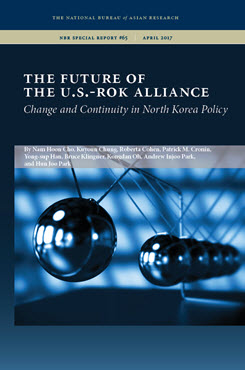U.S. Policy toward North Korea
Security and Human Rights Go Hand in Hand
This essay examines the relationship between the human rights situation in North Korea and international security and considers concrete policy options for the Trump administration to pursue both goals in a comprehensive way.
EXECUTIVE SUMMARY
MAIN ARGUMENT
While the North Korean government has been accelerating its development of nuclear weapons and ballistic missiles over the past five years, its record of widespread systematic human rights abuse has also come to light for all the world to see. The nature of the regime is a danger to Northeast Asia and the world, driving the bellicose policies of nuclear weapons and missile programs and causing insecurity. Any genuine effort to reduce tension on the Korean Peninsula will therefore have to include measures to address the human rights situation. The linkages between human rights, peace, and security, as examined here, highlight the advantages of formulating a comprehensive policy that prioritizes both denuclearization and human rights.
POLICY IMPLICATIONS
Given the connection between the human rights situation in North Korea and international security, the Trump administration should consider adopting the following policy objectives:
- The development of a comprehensive policy under which both human rights and denuclearization are promoted as integral parts
- The identification of human rights goals to advance in a negotiation in the same way that goals for nuclear weapons issues are prepared for discussion
- The promotion of greater information flow into and out of North Korea to help transform the country
- The insistence on bringing to justice those officials responsible for crimes against humanity as a longer-term goal


